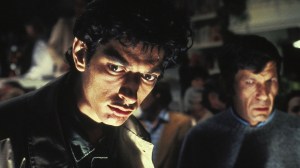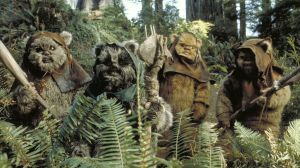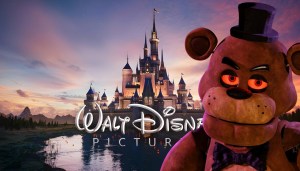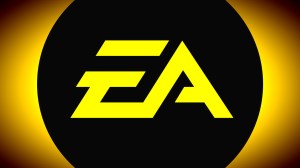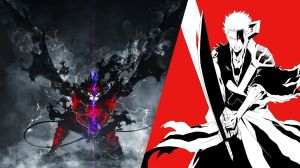Netflix is set to release Dogs in Space, a new animated series that is exactly what it sounds like, on November 18th from first-time creator Jeremiah Cortez. It’s an animated adventure-comedy show for kids that humanizes dogs without removing what makes them goofy and wonderful, and ahead of release, ComicBook.com had the opportunity to speak with Cortez and his co-showrunner, Adam Henry. all about it.
Videos by ComicBook.com
“In the not-so-distant future, genetically enhanced dogs are sent across the universe in search of a new home for the human race,” Netflix’s synopsis of Dogs in Space reads. “It’s a giant cosmic game of fetch, as the canines seek a planet that will save humanity and – more importantly – let them return to their beloved owners.”
The animated series features an incredible voice cast with the talents of Haley Joel Osment as the voice of Garbage, Sarah Chalke as the voice of Stella, Kimiko Glenn as the voice of Nomi, Chris Parnell as the voice of Ed, David Lopez as the voice of Chonies, William Jackson Harper as the voice of Loaf, and JP Karliak as the voice of Happy. If you’re an avid fan of animation, you’ll also likely catch some familiar voices among the larger supporting cast as well.
As noted above, Netflix’s Dogs in Space releases its 10-episode launch order tomorrow, November 18th. The series is produced in partnership with Atomic Cartoons. You can check out all of our previous coverage of Netflix in general right here, and keep reading to check out our full interview with Cortez and Henry all about the animated series.
ComicBook.com: Jeremiah, how did you land the pitch meeting with Netflix and what was that like for Dogs in Space?
Adam Henry: Oh, you’re going to love this.
Jeremiah Cortez: Well with Dogs in Space, it was something I was doing almost as a pastime for myself, really. And it started off as a little comic book that I did in the sketchbook and it followed Garbage who’s the main character of the show. And it was my way of having my pet corgi… I always wanted a corgi growing up and it was one of those things where the likelihood of me ever getting a corgi was unlikely given the price tag.
So during my senior year of college, it was just a story of this corgi and from then on, after graduating, it was something I pursued as a story. Family and friends really wanted to see more because I would let them read the little comic. And from there it was just, “Well I think this is a good story and it’s probably worth maybe pitching.”
So I spent two and a half years developing the pitch bible and the content, some animation clips with temp voices, fully colored and everything. We got the theme song going. And once I had all that ready to go, coincidentally, around that same time, one of my friends said that he knew somebody from Netflix that was interested in hearing the pitch. So I sent that in and two weeks later I got a call to go pitch in person at Netflix. And then two weeks later they picked it up.
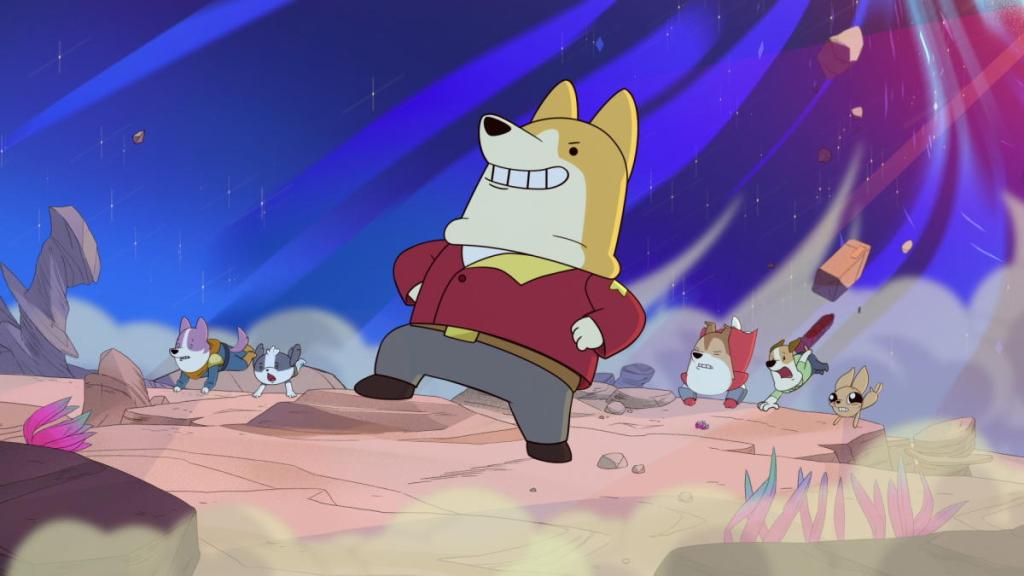
And when was this? Animation notoriously has a pretty long pipeline sometimes.
JC: Yeah. I pitched at the end of 2018 and we started development at the beginning of 2019 and then we were in production by the end of 2019.
That’s not too bad all things considered.
JC: Oh no. Yeah. I’ve heard development could go for years and years. So the fact that we did it within a year was exciting.
AH: I think it’s one of the good things about Netflix actually is, once they greenlight it, they’re like, “OK, make it now, let us know how it turns out.” You know? I mean, they’re very much like a flat structure where you don’t have to go through as many hoops, perhaps as in some other places.
What sort of changes did the show go through from that initial pitch to what I’ve seen on the screen?
JC: Surprisingly, not much. Netflix has always been… Their philosophy is to empower the creators and the talent. So other than maybe one character changing to make room for another during the process, not much was changed from the initial idea. If anything, everything was just built on top of that.
You know, for a show about dogs and space, like it says on the tin, it doesn’t really shy away from complex moral conflicts. Was there ever a moment that either of you were like, “You know what, this is too dark actually.”
JC: I mean, it’s a pretty drama-driven show where the characters really do have to make big decisions and they have to deal with the consequences of those decisions. But that was always part of the premise of the show, was watching something different. You know, you have all these stories with dogs and adventures and stuff, but I wanted to do something where we were watching dogs have a human experience for the first time and learning who they were as individuals.
So that was always part of the plan and a lot of shows did it pretty well. Steven Universe, Adventure Time, they dealt with big moral decisions that the characters had to go through. But you know, that was proof that you can do those types of stories and still have the humor and the action and the heart ring true.
AH: Yeah. And I agree with all that. And I think for me, I love comedy, I love adventure, but if you don’t have a really strong underpinning part underneath those, it’s just like a bunch of moving pictures. So the more heart and the deeper you can get emotionally with a character, the funnier it’s going to be and the easier the other storytelling is going to be.
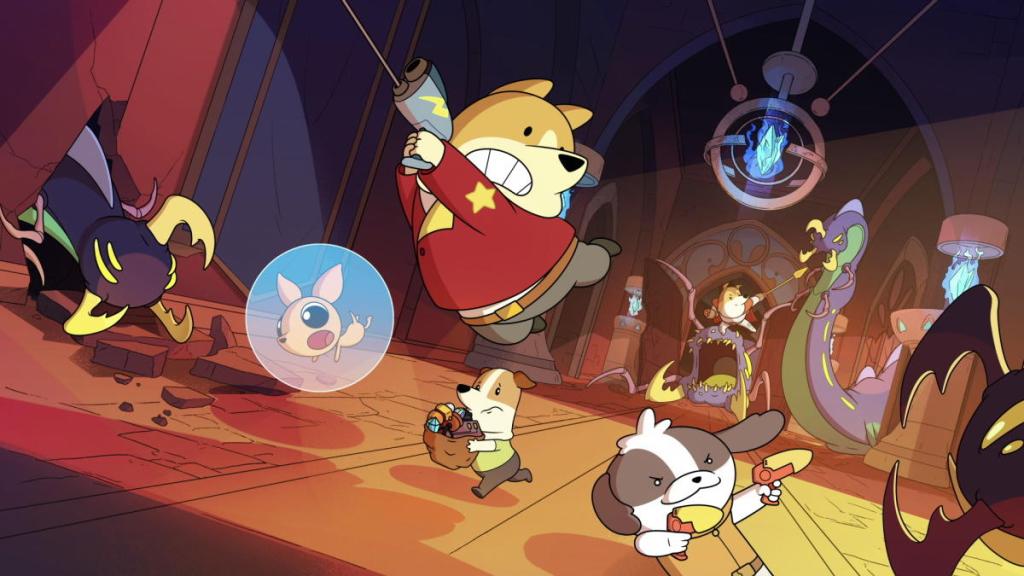
Can the two of you talk a little bit about the voice cast? There are a number of incredibly popular stars like Haley Joel Osment, William Jackson Harper attached to the main cast.
JC: Yeah, we got super lucky. The fact that we got Haley Joel Osment as Captain Garbage is insane. And it’s almost like it was meant to be in a way. When I was developing the show, I wanted that dynamic between Captain Garbage and his owner Chelsea to feel as real as I can make it. And one movie I referenced to try to figure out that tone and how to really make that feel real, it was the movie AI.
And that was a movie about a robot boy who loved this human mother figure. And that was the movie where I was watching just to see how they made that work, how they made you feel for this robot. And you know that little robot boy was played Haley Joel Osment. And it’s just funny, because I referenced Haley in that movie in developing this show. And then, well after he was already recording on the show, did I realize, “Oh, Haley’s on the show doing the main character playing that role where he’s longing for his owner Chelsea.” So that was a very surreal moment for me.
AH: From my perspective, when I first met Jeremiah, like kind of his sort of deep-seated sincerity about things and lack of sort of a layer of personality over his personality kind of struck me. And I think it carried over into the voice casting where we never really wanted anyone to be cartoony. You know, we wanted them to be energetic and funny and fun, but all the voices are pretty much the actors just being themselves. We have some side characters where we get to have some fun with like John DiMaggio and you know, who plays Jake and Bender, you know, bring people like that in for some fun characters.
But you know, we had moments where like one of our actors was like crying during the scene, like at the end of season one. There’s a scene where she just went for it. And we were kind of like, “Oh no, are you really crying?” And she’s like, “No, it’s OK. It’s OK.” And she needed like a minute to recover. So it’s kind of an example of… We really tried to push real emotions for the most part and they were all such pros.
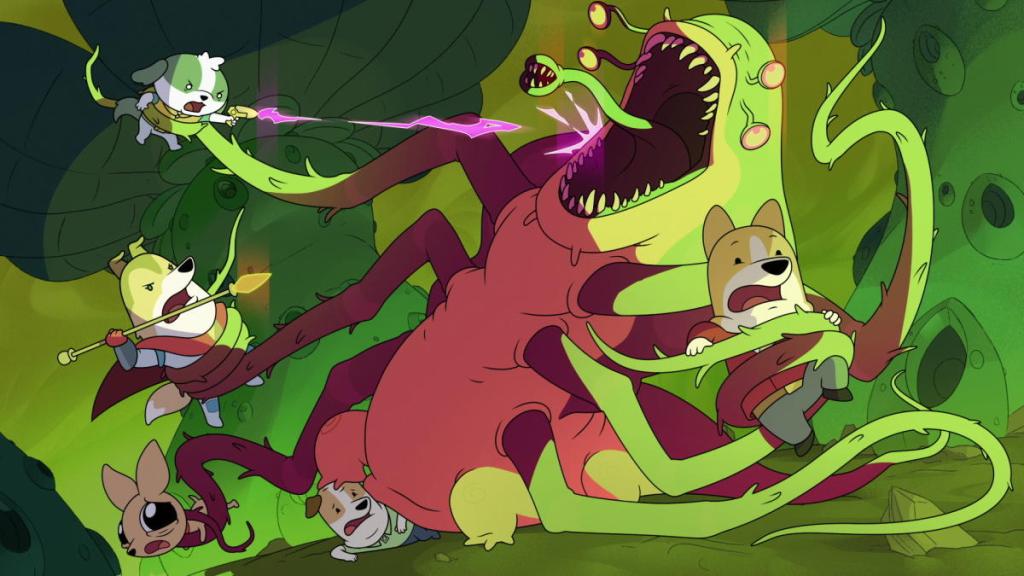
While it is very exciting that this is Jeremiah’s first big show, Adam, you sort of jokingly referenced that you’ve got a number of credits to your name at this point before we started recording. Obviously, I know why Jeremiah is invested in Dogs in Space, what about Dogs in Space first appealed to you, Adam?
AH: I mean the first thing is Jeremiah appealed to me. So we met early in 2018 and I think he met a bunch of different people that could have helped showrun for him. But like I said, he just comes across very sincere. He’s a very easygoing laid back person in general, not a lot of ego, but still a very strong creative presence.
And so the first thing was Jeremiah, because when you’re helping someone make a show, you’re going to be with them really intimately for years. And so, if you two don’t get along on a sort of a really basic level it’s going to be a somewhat painful couple of years. And you know, because making a show’s really hard, and there’s nothing that’s going to fix that. There’s going to be moments that are really difficult and you’re tired. And so just finding someone that I could work with for two years in a really positive creative environment was definitely the biggest deal.
And then the fact that it was dogs in space. I mean I like comedy, I like adventure, I like fun cartoons and there was just nothing about this show that wasn’t all of that. So it was a pretty easy call.
Given the production timeline. I have to ask the million-dollar question that I basically ask everyone at this point. How did the pandemic affect production?
AH: You’re actually the first person to ask us that, but we’ve been waiting.
JC: It was tricky at first. I think everybody in the world and in this industry had their struggles going from working shoulder-to-shoulder in the office and then going home to where you’re now trying to figure out how to Zoom. You’re trying to schedule when you’re able to actually physically do work and how many meetings you can juggle within the same day.
Trying to be creative as far as when it came down to being in the writer’s room… it’s a different dynamic. You have to wait your turn, as far as talking. You can’t just really just talk all at once or else you get muted by the software and stuff like that. It was a new experience for everybody. Everyone had their moments where they burnt out and needed to rest and Atomic and Netflix and Adam and I were very understanding of that. And when people needed a break they were more than welcome to take that break, no questions asked.
But as far as the production and everything, I don’t feel like we really skipped the beat. And I don’t think the show really suffered in any quality way. The show looks amazing. I couldn’t be any more proud of it. It’s better than anything I could have imagined on my own.
AH: Building on what Jeremiah said, the mental health of the crew, which is always kind of should be paramount on any production, not necessarily that it always is, but you know, you really have to pick up those cues on if someone’s starting to go. You know and a lot of it was pandemic related.
Sometimes on a show it’s just work related. Doing animation is hard. Being a storyboard artist is really hard and your days are just full. But add to that, that people are isolated and at home. So you have to really sort of be aware that this was like an added thing. And we definitely had a couple crew members where the isolation aspect of working was hitting them. And so we had to sort of pull them back from work a little bit or move them into a less active or less busy spot or me or Jeremiah would just jump in and do their jobs basically.
There are a lot of times where I just say, “OK, you’ve done enough. I’ll finish this,” whatever aspect that was, because I’ve been in the business long enough that there’s no part of the production process that I can’t jump in on and do pretty well.
The other thing I think… Sort of like my epiphany was, “What am I missing the most here?” What bothers me the most about the pandemic was, it’s the two-minute meetings. There were no two-minute meetings. There was no, pop my head into the office and say, “How you doing? What’s up, what’s going on?” Or just look over someone’s shoulder for 30 seconds and say, “Oh just change that space there.” All those little mini meetings that you have in a production when you’re there together just went out the door. So every meeting had to be a meeting, a half hour, an hour. And so you just missed those smaller meetings.
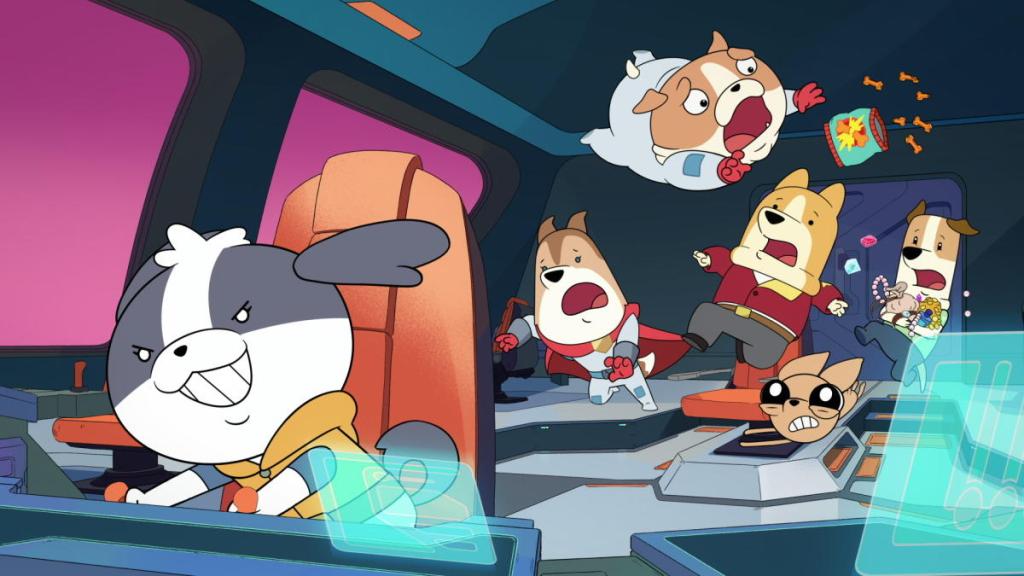
What’s a small detail that you love about the show that you’re not sure if anyone else is even going to notice? Personally, I’m a big fan of the way the dogs’ necks sometimes chunk up in their little clothes.
JC: Yeah, that was something I really had to drill down. The art style’s very simplistic, but it’s very, very complicated underneath it all. With the character Chonies, he’s this little chihuahua and you would imagine by his design, he’s probably the most easiest character to animate and move around, but he’s actually the most complex character. And when it came down to animation he was the one that always had red lines and notes from myself to make sure that he was working properly. He had the most rolls to his eyebrows in his eyes.
As far as the style, and you brought up the neck rolls, that was something we really pushed to make sure looked very, very real. You know, we have these almost flat characters, but we focus on having these very specific overlapping lines and contour lines just to make sure that the characters, even though they’re as simple as possible, they feel very lifelike and move in a very three-dimensional way. So for me, yeah, that’s where my greatest joy comes from is watching these characters move and feel very, very real.
AH: And I’d have to say that neck roll, that’s all Jeremiah. There was no one else that was thinking, “Oh, we need neck rolls in this show.” So that’s just his character design brilliant sensibility. And we had an amazing Character Supervisor, Adam Bernier who really kind of… Him and Jeremiah work so well together. So props to all of them.
For me, I guess it would be, and I’m going to be a little juvenile here. There are three farts hidden in the show. So that was definitely a highlight for me that… Squeeze those in so to speak, pardon the pun. But on s more serious note, we had a Steven Universe Art Director, Liz Artinian. And for me, one of the great joys of the shows is just seeing the art that came out of the show and from her team and her design team. I mean, the BGs are amazing. I asked our studio how many we ended up doing and in a show with 20 episodes, there were over 6,000 BGs, you know, painted BGs and it’s just mindboggling how gorgeous they all look. I just take screen grabs and just want to plaster my wall.
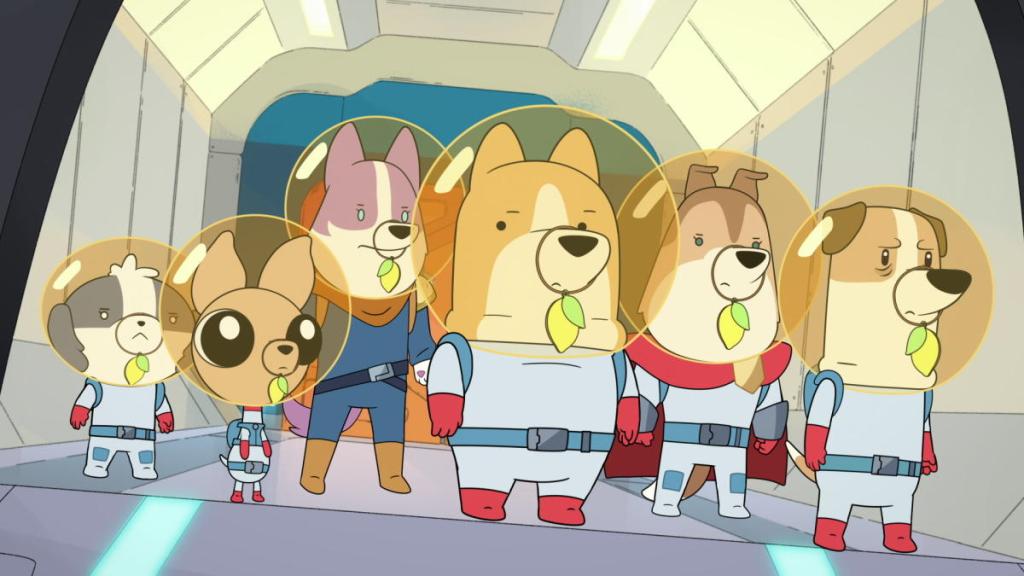
You know, Netflix is notoriously tight-lipped about how many episodes of a given show there are. So I’m glad to hear you say that there’s 20, because one of my questions was literally just going to be, “Tell me there’s more Dogs in Space coming,” because all that’s announced I believe is 10. So are you confirming that there are 20?
AH: Oh, it’s interesting you say that, I might have made a mistake there. Can you not say we have 20? [laughs]
Unfortunately, it is on the record here, I do have it. That said that cliffhanger at the end, which I don’t think that saying that there is a cliffhanger of a sort is going to spoil anything, kind of intimated that.
AH: Right. But maybe I’m just putting you off the fence when I said that? [laughs again]
I’ll make sure to note that. [Ed. note: Netflix only confirmed that the team was “working toward 10 episodes” for launch when asked.]
AH: We want 10 seasons. That’s where I’ll leave it at.
And then the inevitable spinoff right, Cats in Space?
AH: Of course, of course. Although Jeremiah was pretty adamant about not having any cats in the show.
JC: Because it felt like the most obvious thing that would pop up.
AH: But you never know.
The 10 episodes — the 10 confirmed episodes — release on November 18th. How does it feel to be this close to release, to having your baby out in the world?
AH: I mean, I’ll say first, just because I’ve done it a lot of times. This is Jeremiah’s first time, but for me it’s just after so much work, it’s like this huge exhale I guess. So it’s sort of what it feels like to me because you’ve worked so hard, animation can be so hard to produce, to have that moment where it’s finally coming up. It’s finally like you’ve held your breath for two years and you can finally let it go.
JC: Yeah, for me I’m super excited. It’s been surreal the whole way through. And I’ve always tried to keep a level head about the whole thing. More so in the development phase, knowing full well that not everything gets greenlit. I had that mentality of not getting too excited about it. And I think that inadvertently just continued through the production where I didn’t allow myself to get too excited about it even though we were already fully in production. I’m really excited and I’m anticipating feeling whatever flood of emotions comes my way once it’s actually released when I see it physically on the screen.
Are you nervous at all?
JC: No, I don’t think I’m nervous. I’m excited. I know there will be those trolly types out there, but that’s with anything. I don’t think there’s anything in existence that doesn’t have someone’s bad opinion of it. So that doesn’t bother me, I’m not nervous or anything. I just really hope we did our job right and that it really resonates with the target audience we’re going for.
And for me personally, my bread and butter of storytelling is to get that deep emotion out of people. So for me, I know I did a good job if people tell me the show made them tearjerk one or two times.
AH: I’m impervious to all. I’ve been at it too long.
You’ve seen it all under the sun?
AH: I have, I have. But yeah, you always hope this will… this show, this cartoon that will be kind of at the level of like an Adventure Time or a Steven Universe or one of those shows that just really kind of takes off into the atmosphere.
Is there anything else you would like to say about the show, anything at all?
AH: Um, watch it?
A good note!
JC: Dogs in Space was my love letter in a sense to humanity and to dogs and the relationship between the two and what it is to be a human and what it is to be a dog and having these characters experience one another in a completely new way is something I hope makes people think and really appreciate their dogs and appreciate one another as humans and the world. And yeah, I’m looking forward to seeing how people take it.
This interview was lightly edited for length and clarity.

